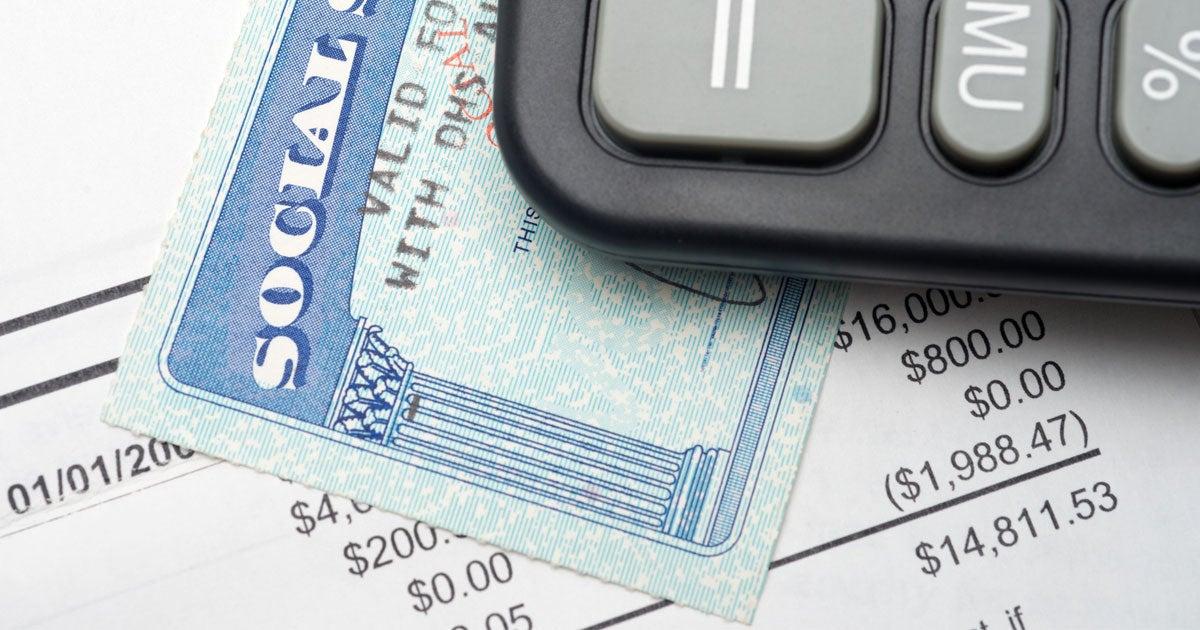
Related Topics
Supplemental Security Income (SSI) is a needs-based assistance program that helps provide income and other benefits. Such programs help 1 in 6 older adults.1
Administered by the Social Security Administration (SSA), SSI provides minimum basic financial assistance to adults 65 and older and people who are blind or disabled (regardless of age) who have very limited income and resources.
If you are eligible for SSI, you could receive a maximum monthly benefit amount of $943 as an individual, or $1,415 for a couple.2 In December 2023, the average monthly SSI payment for people 65 and older was $552.29.3
How do I apply for SSI?
You apply for SSI through Social Security and you can start the application process online. During this first step, you’ll provide basic information like:2
- Name, date of birth, and Social Security number
- Mailing address, telephone number, and email address (optional)
- The name, phone number, and email address (optional) of someone helping you with your application
When you’ve finished the online application, the SSA will schedule an appointment for you to apply for benefits at your local Social Security office. You’ll receive your appointment date and time in the mail within 7-14 days. You may also get an email notification if you’ve provided your email address.
If you are unable to start to apply for SSI online, you can request an appointment at your local Social Security office by calling the SSA at 1-800-772-1213 (TTY 1-800-325-0778).2
Is there an online tool that can help me with applying for SSI?
The Social Security Administration (SSA) has an SSI tool that can help you get started in applying. It only takes 5-10 minutes, and while walking through the process, the tool will document your intent to file an application and establish what's called a 'protective filing date'. A protective filing date will help determine when your payments begin if your application is approved. It's not unheard of, too, for you to receive retroactive payments from your filing date. This doesn't always happen, but you may be eligible for retroactive payments depending on your situation.
It's important to note that using the SSI tool is not an application for SSI benefits. You must file an application with SSA to receive a formal determination of eligibility. Once you submit the information, SSA will schedule an appointment to file the application.
What documents will I need for my SSI application?
When you apply for benefits, you’ll need documents that confirm you meet the SSI eligibility requirements for age, citizenship or legal residency status, income, assets, etc. There are a few different types of records you can use to satisfy the requirement.
“You may not need all of the following documents,” the SSA says. “Sometimes one document can substitute for another. ... We will tell you what you need and what other documents are acceptable.”4
Here are some of the documents older adults may need when applying for SSI :4
Proof of Age: Birth certificate, religious birth record, or other document showing your age or birth date
(Note: If you proved your age when you applied for Social Security, you won’t need to do it again.)
Proof of Citizenship: Birth certificate, naturalization certificate, U.S. passport, or certificate of citizenship
Proof of Legal Residency: Immigration document (permanent resident card, arrival/departure record, etc.)
Proof of Income
- Earned income: pay stubs or a tax return if self-employed
- Unearned income: records (award letters, bank statements, court orders, receipts, etc.) that show how much you receive, how often, and the payment source
Proof of Resources
- Bank statements for all checking and savings accounts
- Deed or tax appraisal statements for property you own besides the house you live in
- Life or disability insurance policies
- Burial contracts, burial plots, etc.
- Certificates of deposit, stocks, mutual funds, or bonds
- Titles or registrations for vehicles like cars, trucks, motorcycles, boats, campers, etc.
Proof of Living Arrangements
- Lease or rent receipt
- Names, dates of births, medical assistance cards or Social Security numbers for all household members
- Deed or property tax bill
- Information about household costs for rent, mortgage, food, and utilities
SSI application tip: The SSA requires you to submit original documents or certified copies, and the agency will return them to you.4
Can a family member help me apply for SSI?
You can ask a family member or friend to help you apply for benefits. These are some of the tasks they can perform:6
- Complete forms
- Call the Social Security office
- Gather and provide information
- Interpret
- Receive mail for you at his or her address
Social Security representatives can also help you apply for benefits. They can complete your application based on information you supply and may be able to help you get documents you need to demonstrate your eligibility. They also will provide an interpreter if needed.5
SSI application tip: Keep a record of when you call or visit the Social Security office, who you talk to, and what you discuss. This can be helpful if you have questions during the SSI application process.4
How can I check my SSI application status?
You can follow the progress of your SSI application online through your my Social Security account. If you don’t have an account, you can create one. When you log in, you’ll find SSI application status details.
You can also call the Social Security toll-free number at 1-800-772-1213 (TTY 1-800-325-0778).
SSI application tip: You may be eligible for other government benefits that can improve your quality of life. Visit the SSA’s Benefit Eligibility Screening Tool to learn more.
Sources
1. U.S. Census Bureau. What Happens When Older Adults Struggle to Make Ends Meet? Oct. 28, 2021. Found on the internet at https://www.census.gov/library/stories/2021/10/what-happens-when-older-adults-struggle-to-make-ends-meet.html
2. Social Security Administrations. You May Be Able to Get Supplemental Security Income. January 2023. Found on the internet at https://www.ssa.gov/pubs/EN-05-11069.pdf
3. Social Security Administration. Monthly Statistical Snapshot. December 2023. Found on the internet at https://www.ssa.gov/policy/docs/quickfacts/stat_snapshot/2023-12.pdf
4. Understanding Supplemental Security Income (SSI). Documents You May Need When You Apply. 2022. Found on the internet at https://www.ssa.gov/ssi/text-documents-ussi.htm
5. Supplemental Security Income (SSI) Application Process and Applicants’ Rights. 2022. Found on the internet at https://www.ssa.gov/ssi/text-apply-ussi.htm
6. Understanding Supplemental Security Income (SSI). How Someone Can Help You with Your Supplemental Security Income (SSI). 2022. Found on the internet at https://www.ssa.gov/ssi/text-help-ussi.htm




